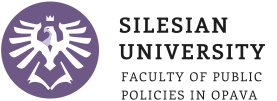Central European Papers, 2015 (vol. 3), issue 2
Editorial
Prologue to the second issue of the third volume of Central European Papers (C.E.P.)
Ivan HALÁSZ
Central European Papers 2015, 3(2):5 
Articles
The Congress of Visegrád in 1335
György RÁCZ
Central European Papers 2015, 3(2):8-19 | DOI: 10.25142/cep.2015.014 
The article deals with the organisational aspects of the Congress of the Czech, Hungarian and Polish Kings in Visegrad in 1335. The introduction focuses on the sources of this research. The first substantive chapter deals with the political and logistical aspects for the choice of the location for the Congress and then with the main points of the negotiations. Significant part of the article is dedicated to the previous history of the Congress and to the organizational details. The readers can obtain a lot of information about the number of participants and about their social-cultural life during the Congress. Very interesting part of the article deals...
The Novelty of the Utrecht Peace Settlement (1713)
Endre SASHALMI
Central European Papers 2015, 3(2):20-33 | DOI: 10.25142/cep.2015.015 
This article argues that the modern European states system came into being not with Westphalia (1648) but as a result of the Utrecht Peace Settlement (1713). Besides summarizing recent revisionist scholarship on the nature of the 'Westphalian order', the author tries to enlist the new features of the Utrecht Settlement which he considers the real turning point in the European inter-dynastic relations. He relies not only on written primary sources (the Anglo-Spanish and the Anglo-French Treaties) but also visual evidence to buttress this claim, and underlines the relevance of visual representation of peace conferences as an important field of political...
Organisational aspects of the Paris Peace Conference (1919-1920)
René PETRÁ©
Central European Papers 2015, 3(2):34-44 | DOI: 10.25142/cep.2015.016 
The Paris Peace Conference (1919-1920) was expected to resolve all the numerous issues after World War I, but the organisation of this gigantic event was rather insufficient. The conference was held in Paris, recognising the important position of the principal country of the Allied victors. In the past, conferences were predominantly attended by professional diplomats, capable of "coaching" their sovereigns or politicians. The Paris Peace Conference was officially supposed to be different in that secret diplomacy undertaken by diplomats was disavowed. The criticism of the old traditions prevalent in diplomacy resulted in a different composition of...
Paris Conference 1946 - organizational principles of the Peace Conference
©tefan ©UTAJ
Central European Papers 2015, 3(2):45-61 | DOI: 10.25142/cep.2015.017 
The Paris Peace Conference 1946 in a significant manner interfered into the European and Central European politics. It became a place of confrontation but also a place of formation of basic lines of post-war political orientation and international political status of participating and involved countries. The preparations of peace agreements with Italy, Romania, Bulgaria, Hungary and Finland during the Potsdam Conference (July - August 1945) was delegated to the Council of Foreign Ministers, composed from representatives of Soviet Union, USA, Great Britain and China. The Council of Foreign Ministers submitted to the Paris Peace Conference held from...
International negotiations in the context of the evolution of international relations: theoretical assumptions and observations
Barbara CURYŁO
Central European Papers 2015, 3(2):62-77 | DOI: 10.25142/cep.2015.018 
The article considers the importance of international negotiations in the context of changes that have been occurring in international relations, especially after the First World War. The article is divided into four sections that show qualitative changes in the international negotiations in the context of changes which indicate progress in the development and deepening of international relations. In the first chapter, I discuss international opportunities that favor the intensification of international negotiations. The second chapter discusses the actors of international negotiations, indicating that with the evolution of international relations,...
Reform of the Police of the Czech Republic: An unfinished business?
Miroslav MARE©, Marek SUCHÁNEK
Central European Papers 2015, 3(2):78-98 | DOI: 10.25142/cep.2015.019 
This article analyses reform of the Police of the Czech Republic undertaken at the end of the first decade of the 21st century. Its aim was to increase the efficiency of the Police to suit new social conditions. The article analyses the evolution of the reform, the structural and institutional transformations to the Police, and the related establishment of an additional security body (the General Inspection of Security Corps). The authors ascertain that despite a number of important changes being carried out, the reform failed to provide a unified strategic approach to Police activities.
Rethinking the concept of failed state
Ilona SZUHAI
Central European Papers 2015, 3(2):99-110 | DOI: 10.25142/cep.2015.020 
This study summarises the history of failed state concept, the difficulties of a clear definition of failed state and the reasons why the categories of various linking expressions like weak, fragile, failing, collapsed states are mixing. 2015 remained a turbulent year of conflicts in the world, which drew attention on failed states. One of the symptoms of failed states is the form of forced migration when people leave their home due to intrastate armed conflicts, terrorist activities, brutal violation of human rights, poverty, lack of humanitarian aid and poor public services. The study outlines the connection with security and one of the biggest actual...
Reviews
Péter TAKÁCS, A rózsa neve: Magyar Köztársaság - Az államok nevéről és a magyar állam átnevezéséről [The name of the rose: Hungarian Republic - about states' names and about changing of the name of the Hungarian state]
Réka Zsuzsánna MÁTHÉ
Central European Papers 2015, 3(2):112-115 
Budapest: Gondolat 2015, 230 pagesISBN 978-963-693-598-6
Juraj MARU©IAK - Ivan HALÁSZ - Mateusz GNIAZDOWSKI (eds.), (Dez)integračná sila stredoeurópskeho nacionalizmu. Prípad ątátov Vyąehradskej skupiny [The (dis)integration power of Central European nationalism: A study of the Visegrad Group countries]
Łukasz LEWKOWICZ
Central European Papers 2015, 3(2):116-119 
Bratislava: Univerzita Komenského v Bratislave 2015, 220 pagesISBN 978-80-223-3874-5


